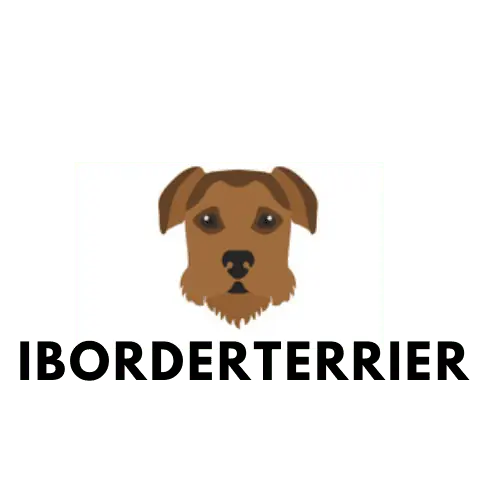Border Terriers are very intelligent, active and energetic breed. They have been known to work for many hours each day.
In general, they are quick learners who make good watchdogs, although it is rare that you will find one barking without reason. Border Terriers love to dig holes in the yard or flowerbeds (and sometimes also in their beds) because this is what they were bred to do; however, with time and training this can be curtailed. They adapt readily to their surroundings and can learn routines quite easily. Because of their small stature it does not take much for them to get into mischief if not kept busy or sufficiently exercised accordingly . Borders require extensive socialization during puppy hood (from 8-14 weeks). They need active owners who are committed to providing them with lots of attention.
Is a Border Terrier a good family dog?
Border Terriers are challenging dogs for families because of their intelligence and high energy. They do not like to be left alone for long periods of time. Borders are very loyal to their owners, but can become protective if they feel that their family is being threatened .
What are the characteristics of the Border Terrier?
The Border Terrier’s most distinctive feature is its thick wiry coat coming in varying colors including wheaten , red, black/tan, grizzle/tan, blue/tan, or sandy. They have a pleasant expression on an alert face with pricked ears which move around constantly scanning their surroundings. Borders vary widely in size from just 12 inches at the shoulder to heights ranging between 15-19 inches . The males usually are larger than females. Their coats require regular brushing to prevent mats from forming .
Border Terriers are small but powerful dogs, yet they are full of energy and posses excellent stamina. They are extremely intelligent, independent free thinkers that will test your leadership to the limit if you allow them to do so! Borders need an owner who is willing to provide consistent obedience training, firm handling , confident authority along with plenty of exercise – without these elements in place the Border will become willful and bossy which results in a dog who is uncontrollable. With proper training and socialization Borders can be wonderful family companions or pets because they love children…however you have to be prepared for “wrath” should someone invade your personal space – borders are known for their explosive reactions. This breed enjoys the company of other dogs and also cats, provided that they were raised together since puppyhood , but care should be taken with small animals such as hamsters, rabbits or guinea pigs due to their hunting instincts; some Borders may not be able to resist the urge to chase these types of prey .
Generally, Borders are healthy dogs that can live up into their late teens (14) if properly cared for; however , like all breeds they are susceptible to certain genetically related health problems which your new pup should be tested for before taking him/her home.
The most common health conditions found in Border Terriers include:
Hip Dysplasia – Canine hipplasia is a heritable condition in which the head of the femur does not fit snugly into the pelvic socket of the hip joints. This is a painful condition that can lead to arthritis as your Border ages.
Von Willebrand’s Disease – Border terriers are more likely than other breeds to inherit this bleeding disorder, which tends to be more pronounced after surgery or with injuries. Dogs with vWD do not form normal blood clots and will bleed longer following an injury or surgery than their healthy counterparts.
Epilepsy – A neurological disease characterized by recurrent seizures .
Elbow Dysplasia- Canine elbow dysplasia is a heritable condition usually seen in large breed dogs, affecting both elbows most commonly. Elbow dysplasia occurs when the cartilage that cushions the joint deteriorates, resulting in arthritis and painful lameness.
Cataracts – In this condition, a cloudy or discolored spot develops on the normally clear lens of the eye. Cataracts may occur at any age, but most commonly they are seen in older dogs.
Prescription Diet z/d Canine Small Bites is a prescription diet formulated to address certain health concerns in dogs including:
Gastrointestinal Health – This food was developed by a veterinary nutritionist who specializes in gastroenterology . It contains highly digestible ingredients which can help improve nutrient absorption and Digestibility Trial results showed that 94% of Border terriers eating this food had an improved quality of stool as compared to only 50% on their previous diet (more about Border Terrier puppy food) .
Skin and Coat Health
This food was also formulated by a veterinary nutritionist with over 25 years of experience specializing in skin and coat health. It contains high levels of omega-6 fatty acids which can be beneficial for some dogs who have dry, flaky skin or brittle coats. Many Borders on this food saw an improvement in the quality of their skin and coat within just 8 weeks.
Border Terriers often do not eat when stressed , so it is important that you begin teaching them at a young age to enjoy eating in the presence of other animals and people (e.g., family members). Also, because many Borders will go days without eating if they are kenneled away from home, consider feeding them twice per day so they do not get stressed when you leave or go to bed.
Summary : Borders are generally healthy dogs but can suffer from certain health problems which your new pup should be tested for before taking him/her home. These include Hip Dysplasia, Von Willebrand’s Disease, Epilepsy and Elbow Dysplasia. Make sure to keep your Border trim – obesity can exacerbate existing health issues – and provide a high quality dog food that will address specific health concerns such as skin and coat health or gastrointestinal health. Most importantly, make sure to set up a training program for your new Border Terrier .
















